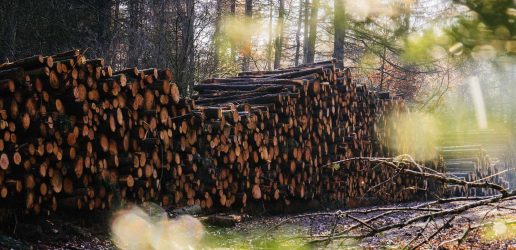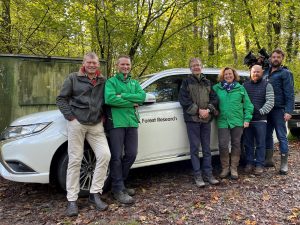
Forest Research was featured on BBC Countryfile on Sunday 20th November. Not normally in the public eye, forest scientists based at our Alice Holt research station opened the doors on their cutting-edge laboratory facilities and world leading expertise on forest science. Providing evidence and advice to policymakers and woodland managers is at the front line of our research into climate change and pests and diseases.
During the episode, presenter Tom Heap met in the forest with Caroline Gorton from Forest Research’s Tree Health Diagnostic and Advisory Service who demonstrated how to take bark samples for use in lateral flow test kits to detect for the presence of Phytophthora – the “plant destroyer” water mould. Taking positive bark samples into the mobile laboratory, Forest Research’s latest acquisition to provide a rapid response to outbreaks in the field, Caroline demonstrated how to process samples – even using a Granny Smith apple to “bait” the organism.
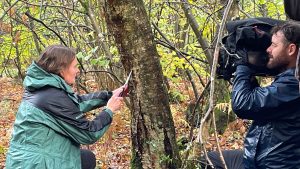
Returning to our world class Holt Laboratory, Tom met with Max Blake, Forest Research’s Head of Entomology, who explained how insects of all shapes and sizes could be imported into Britain unseen in everyday items. Max showed the characteristic galleries created by Ips typographus beneath the bark of susceptible spruce trees and explained the effect that climate change is having on the ability of the beetle to survive in south-east England. There was also an “up close and personal” encounter with one of the hairy beetles under a microscope.
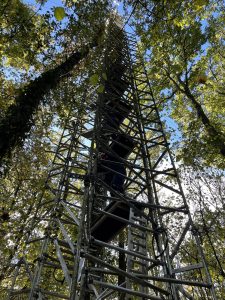
To round off the visit, climate scientist Matt Wilkinson took Tom on a climb up the flux tower at the Straits Inclosure to explain how we monitor flows of carbon in to and out of the forest. Matt explained how this work informs our understanding of how forests both here and around the world are reacting to climate change and how the science can guide our actions.
The programme is available to watch on the BBC iPlayer until October 2023, and the work of Forest Research is featured approximately 22 minutes into the episode.
For further information about our activities, including current employment opportunities, please explore our website and/or contact us.
Recent News
View All news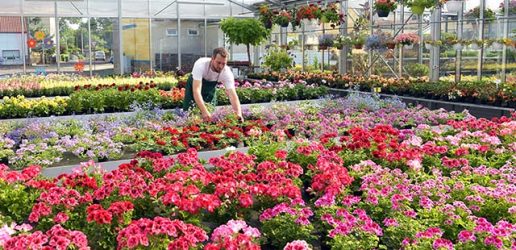
New national survey launched to strengthen plant pest and disease detection across UK horticulture
UK horticulture and landscaping businesses invited to take part in survey to strengthen non-native plant pest and disease detection and reporting.
Forestry and timber businesses across the UK are being asked to take part in an annual survey programme to collect data about the UK timber industry.
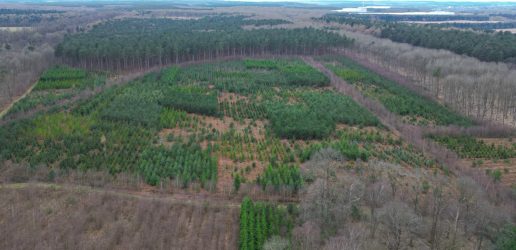
Seventeen coniferous tree species show early promise for future commercial timber production in the UK
Researchers have set up a network of nine large scale experiments across the UK to test the suitability of 17 tree species as potential alternatives for future commercial timber production.

New national survey launched to strengthen plant pest and disease detection across UK horticulture
UK horticulture and landscaping businesses invited to take part in survey to strengthen non-native plant pest and disease detection and reporting.
Forestry and timber businesses across the UK are being asked to take part in an annual survey programme to collect data about the UK timber industry.

Seventeen coniferous tree species show early promise for future commercial timber production in the UK
Researchers have set up a network of nine large scale experiments across the UK to test the suitability of 17 tree species as potential alternatives for future commercial timber production.

